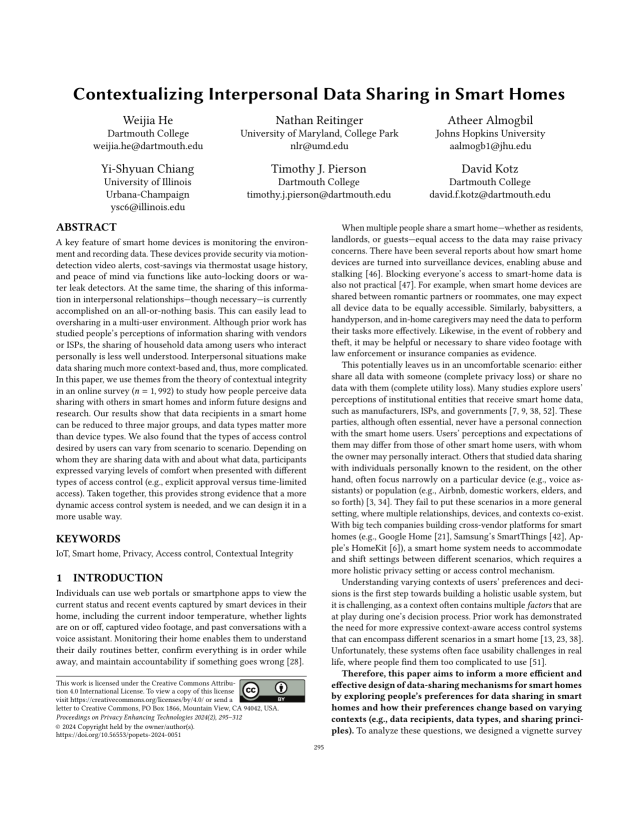Contextualizing Interpersonal Data Sharing in Smart Homes
Authors: Weijia He (Dartmouth College), Nathan Reitinger (University of Maryland, College Park), Atheer Almogbil (Johns Hopkins University), Yi-Shyuan Chiang (University of Illinois Urbana-Champaign), Timothy J. Pierson (Dartmouth College), David Kotz (Dartmouth College)
Volume: 2024
Issue: 2
Pages: 295–312
DOI: https://doi.org/10.56553/popets-2024-0051
Abstract: A key feature of smart home devices is monitoring the environment and recording data. These devices provide security via motion-detection video alerts, cost-savings via thermostat usage history, and peace of mind via functions like auto-locking doors or water leak detectors. At the same time, the sharing of this information in interpersonal relationships---though necessary---is currently accomplished on an all-or-nothing basis. This can easily lead to oversharing in a multi-user environment. Although prior work has studied people's perceptions of information sharing with vendors or ISPs, the sharing of household data among users who interact personally is less well understood. Interpersonal situations make data sharing much more context-based and, thus, more complicated. In this paper, we use themes from the theory of contextual integrity in an online survey (n=1,992) to study how people perceive data sharing with others in smart homes and inform future designs and research. Our results show that data recipients in a smart home can be reduced to three major groups, and data types matter more than device types. We also found that the types of access control desired by users can vary from scenario to scenario. Depending on whom they are sharing data with and about what data, participants expressed varying levels of comfort when presented with different types of access control (e.g., explicit approval versus time-limited access). Taken together, this provides strong evidence that a more dynamic access control system is needed, and we can design it in a more usable way.
Keywords: IoT, Smart home, Privacy, Access control, Contextual Integrity
Copyright in PoPETs articles are held by their authors. This article is published under a Creative Commons Attribution 4.0 license.

